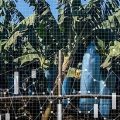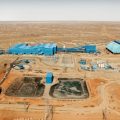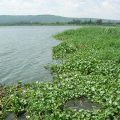SPECIAL REPORTS AND PROJECTS
Coalition for Rainforest Nations announces sale of 6,106 REDD credits from Papua New Guinea to Blackstone Energy Services
Published
4 years agoon
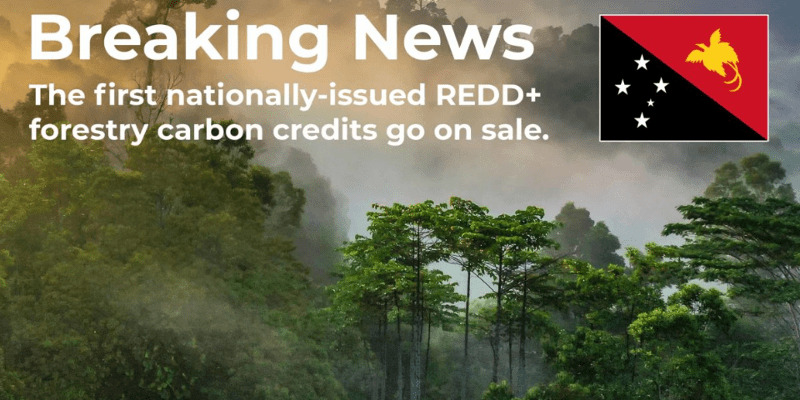
On 29 March 2021, REDD-Monitor wrote about a REDD deal that Kevin Conrad, the Executive Director of the Coalition for Rainforest Nations, signed with Papua New Guinea. Conrad claims the deal will mark “the very first time that (carbon) credits that have been approved by the UNFCCC are being marketed to an open forum to our consumers”. Conrad’s REDD deal was signed on 17 March 2021.
The Papua New Guinea newspaper, the Post Courier reported Conrad as saying that,
“Once we get everything signed up we are going to do a transaction next week, probably just a small one, about US$10,000, just to show and announce that the system is up, and all consumers need to show a transaction to bring other people in.
“We have a company in Canada called the Blackstone Energy, who will be the first company to buy from PNG and their idea is just to get the game started.”
This is a top down REDD deal, with little or no transparency. No process of free, prior and informed consent was carried out before Conrad signed the REDD deal with Wera Mori, PNG’s Minister for Environment, Conservation and Climate Change, and Ruel Yamuna, Managing Director of the Climate Change Development Authority.
Where the money from the carbon credit sales will end up is far from clear. PNG has not yet produced a REDD benefit sharing agreement.
A two-year-old “new report”
On 30 March 2021, the Coalition for Rainforest Nations put out a press release under the headline, “Papua New Guinea Slows Rainforest Deforestation after a Decade, According to New UNFCCC Report”.
The “New UNFCCC Report” is a report published by Papua New Guinea’s Climate Change and Development Authority and submitted to the UNFCCC.
The Climate Change and Development Authority’s report is Papua New Guinea’s First Biennial Update Report to the UNFCCC. It is dated December 2018.
The Biennial Update Report states that PNG achieved REDD+ results in 2014 and 2015 of 9,003,314 tCO2e. But in both 2014 and 2015, PNG emitted almost 40 million tCO2e from deforestation and forest degradation. The country can only claim REDD+ results because PNG, with the help of the FAO, created a Forest Reference Level that increases every year. As long as PNG’s forest destruction remains under the Forest Reference Level, PNG can continue to destroy its forests and claim millions of carbon credits from “REDD+ results”.
Meanwhile, of course, governments have not yet completed negotiations at the UNFCCC on Article 6 of the Paris Agreement. Article 6 involves the rules about creating a new carbon trading mechanism.
On 9 April 2021, REDD-Monitor received the following message from Mark Grundy of the Coalition for Rainforest Nations:
Subject: [REDD-Monitor] Contact
Name: Mark Grundy
Email: mark@cfrn.org
Website: https://redd-monitor.org/
Comment: Dear Chris,
Please correct your article about Blackstone’s purchase of nationally-issued REDD+ forestry carbon credits. The transaction was for 6,100 credits
You can view the deal on CFRN.org
Best
Mark
Sure enough, a Coalition for Rainforest Nations press release dated 8 April 2021 announces that Blackstone Energy Services has bought 6,106 carbon credits from Papua New Guinea.
Here are the Coalition for Rainforest Nations’ two recent press releases (neither of which mentions the ongoing negotiations about Article 6 of the Paris Agreement):
News: Papua New Guinea Slows Rainforest Deforestation after a Decade, According to New UNFCCC Report
Nine million UNFCCC-verified, forestry carbon credits issued for sale by sovereign government.
March 30, 2021, Port Moresby, Papua New Guinea
Papua New Guinea’s rainforest conservation efforts successfully slowed the pace of deforestation in 2014-2015, after bringing annual deforestation levels down to an annual average of 0.5% over a thirteen-year period, according to a report published by United Nations Framework Convention on Climate Change (UNFCCC). As a result of these efforts, UNFCCC verified 9 million metric tonnes (mt) of carbon reductions for this period. The results were posted on UNFCCC REDD+ Information Hub along with four other prerequisites to UNFCCC REDD+ verification:
- National REDD+ Strategy
- National Forest Reference Level
- National Forest Monitoring System
- Safeguards Information Summary.
Highlights:
- Deforestation: Between 2000-2013, Papua New Guinea saw an average loss of 0.5% of its national rainforest annually or 197,000 hectares of forest. The highest annual deforestation figures came in 2013 with a loss of 39,676 hectares. Loss was primarily due to conversion of forests to croplands for both non-commercial agricultural needs of its population (63%) as well as commercial agriculture (30%).
- Degradation of remaining rainforests, primarily for commercial logging was also a major concern. Peaking in 2012 with 240,000 hectares, government action led to steadily declining degradation from 2013 onwards. 2014 and 2015 showed a marked decline in deforestation in both drivers.
- Reforestation and forest rehabilitation activities: Conversely, efforts to enhance forest cover through reforestation and forest rehabilitation activities were limited, despite ambitious goals set out within Papua New Guinea’s Vision 2050 to establish 800,000 hectares of forest plantation by the middle of this century.
“These results are a testament to over two decades of national action and leadership – and are a fitting and timely tribute to the late Sir Michael Somare who pioneered global rainforest conservation. The data from 2014-2015 clearly show that Papua New Guinea has now turned a corner in our battle to stop deforestation,” said, Ruel Yamuna, Managing Director of the Climate Change and Development Authority.
Papua New Guinea’s 9 million mt of carbon reductions will become the first nationally issued REDD+ forestry carbon credits to go on sale to corporations and consumers. This comes after a decade of international negotiation to establish Reducing Emissions from Deforestation and Degradation and the role of conservation, sustainable management of forests and enhancement of forest carbon stocks in developing countries (REDD+) as a global conservation mechanism under the Paris Agreement on climate change – which was achieved in 2015.
The REDD+ mechanism, the brainchild of late Sir Grand Chief Michael Somare – founding father of Papua New Guinea, was started by Papua New Guinea and the Coalition for Rainforest Nations in 2005 under the UN Framework Convention on Climate Change (UNFCCC). The government of Papua New Guinea intends to set up a national biodiversity and climate change trust fund to manage and distribute the wealth accumulated from the revenues of nationally issued REDD+ forest carbon credits and other grants and donations. This will be announced in PNG Parliament in April.
A signing ceremony of the Memorandum of Understanding (MOU) took place on Wednesday March 17 in Port Moresby between the government of Papua New Guinea and REDD.plus to permit the sale of the forest carbon credits. Wera Mori, Minister of the Environment, Conservation & Climate Change and Kevin Conrad, Chief Executive of REDD.plus signed the agreement.
“Today’s agreement constitutes a significant milestone for the REDD+ story and for Papua New Guinea. People and companies will be able to purchase forest carbon credits that reward a country’s successful conservation efforts as well as count towards the Paris Agreement and the global carbon budget,” said Kevin Conrad, Executive Director, Coalition for Rainforest Nations. “Buying nationally issued REDD+ forest carbon credits is a powerful way to support global efforts to tackle the climate emergency.”
While Papua New Guinea’s nationally determined contribution under the Paris Agreement in which targets for emissions reductions in the land use and forest sector have not been identified beyond 2015, mitigation actions from its national policies, Vision 2050 and the Medium-Term Development Strategy 2030 have been set out.
Papua New Guinea’s nationally issued REDD+ forestry carbon credits were made available for purchase today on REDD.plus registry – provided by IHS Markit and trading platform by CBL. REDD.plus is currently managed by not-for-profit, Coalition for Rainforest Nations.
About
Climate Change and Development Authority, Independent State of Papua New Guinea
The Climate Change Development Authority is mandated under the Climate Change (Management) Act 2015 with the responsibility to contribute toward global efforts in mitigating greenhouse gas emissions, through low carbon development that fosters economic growth and social welfare for the people’s wellbeing and prosperity. It is based in Port Moresby, Papua New Guinea. Learn more at PNG REDD+
Coalition for Rainforest Nations
The Coalition for Rainforest Nations is US 401c3 not-for-profit established by forested tropical countries to collaboratively reconcile forest stewardship with economic development. Its assists tropical governments, communities and peoples responsibly manage their rainforests. It is the architect of the REDD+ mechanism and is headquartered in New York.
REDD.plus is the first digital platform enabling carbon neutrality under the Paris Agreement, and provided by IHS Markit and trading platform by CBL. It is a central registry and exchange for nationally issued carbon reductions or REDD+ Results Units from rainforest nations, certified by the United Nations. REDD.plus is owned and managed by the Coalition for Rainforest Nations.
News: Blackstone Energy Services Buys First Sovereign Government Issued REDD+ Forestry Carbon Credits to Save Papua New Guinea’s Rainforests
Toronto, Canada, April 8, 2021, 07.00pm
Blackstone Energy Services, Canada’s leading energy services company made the first commercial purchase of UNFCCC-verified, REDD+ forestry carbon credits or REDD+ Results Units (RRUs), issued by the sovereign government of Papua New Guinea (PNG) today. Blackstone’s pilot purchase of 6,106 metric tonnes of forestry carbon credits is intended to both offset its historical carbon footprint back to 2003, and its estimated emissions up until to and including 2030. Beyond this pilot purchase, Blackstone plans to offer sovereign government issued carbon credits from rainforest nations to its portfolio of North American clients with a collective annual energy spend over US$2.5 billion.
“The sale sets a precedent for corporations wishing to achieve net-zero targets from carbon reductions directly linked to country efforts under the Paris Agreement and the global carbon budget,” says Ryan Duffy, Chief Executive Officer, Blackstone Energy Services. “The fact that these carbon credits represent UNFCCC-verified emissions reductions from national conservation efforts which have happened– and not future promises – is important to us and our clients.”
Blackstone bought carbon reductions created by PNG’s tropical rainforests from a two-year period of impact. The United Nations Framework Convention on Climate Change (UNFCCC) verified that Papua New Guinea’s government, its agencies and local communities had successfully slowed the pace of deforestation across its 113.8 million acres (about the area of California) of rainforests. The credits came from a tranche of 9,003,314 metric tonnes of carbon emissions reductions issued by the sovereign government two weeks ago. To achieve these results, the government introduced a series of domestic initiatives and policies over a 15-year period, and also satisfied the UNFCCC verification process by submitting: a national conservation (REDD+) strategy, a national online forest monitoring system, forest reference levels, and other safeguards.
With Papua New Guinea being the current Coalition for Rainforest Nations Chair, Honorable Wera Mori, Minister for Environment, Conservation and Climate Change, was pleased to witness the first commercial transaction of nationally issued REDD+ credits and thanked Blackstone Energy Services for taking the lead as a responsible corporate citizen:
“The world is currently facing a climate emergency and PNG is mitigating the effects of climate change through rainforests and REDD+. This is also captured in PNG’s revised National Determined Contributions that was submitted last year to the UNFCCC, including the National Sustainable Development Goals (SDG) 13 Climate Action Roadmap (2020 – 2030),” says Minister Mori.
Unlike project-based REDD+ carbon credits, which have been available on the voluntary carbon markets for over a decade, Blackstone’s purchase marks the first commercial transaction of nationally issued REDD+ credits or REDD+ Results Units. The Reducing Emissions from Deforestation and Degradation (REDD+) Mechanism, the brainchild of late Sir Grand Chief Michael Somare – founding father of Papua New Guinea, was started with the Coalition for Rainforest Nations (CfRN) in 2005 under the UNFCCC. It took a decade of international and domestic climate policy work as well as in-country capacity building and technical training to forestry commission teams across the world before the first carbon credits could become available today.
“This is a healthy milestone for the UNFCCC REDD+ mechanism. Both Blackstone’s purchase today and others in the pipeline offer encouraging early signs of corporate demand for this new carbon credit. We expect to see REDD+ Results Units playing a platinum role within both the compliance markets and as an Internationally Transferred Mitigation Outcome (ITMOs), qualifying for international transfer of carbon reductions for countries under the Paris Agreement,” says Kevin Conrad, Executive Director, Coalition for Rainforest Nations.
Papua New Guinea’s REDD+ results were reported in a technical annex on REDD+ results to the biennial update reports and underwent technical analysis by UNFCCC. To view these reports and all UNFCCC requirements and safeguards, see Lima REDD+ Information Hub. Papua New Guinea’s REDD+ Results Units (RRUs) are available on REDD.plus platform, provided by Markit and trading platform by CBL. The government of Papua New Guinea intends to set up a national biodiversity and climate change trust fund to manage and distribute the funds accumulated from the revenues of nationally issued REDD+ forestry carbon credits and other grants and donations. This will be announced in PNG Parliament this month.
Blackstone Energy Services
Blackstone is an independent energy management firm that delivers purposeful change for clients by guiding large private and public-sector businesses on their journey to net-zero consumption. Their custom energy management solutions cover cost, consumption, and carbon improvements. With a client portfolio representing over 1 million tonnes of CO2e each year for scope 1 and 2 emissions, it is their vision to take all their clients to net zero by 2050. Blackstone is based in Toronto, Canada.
Contact: Darlene Remlinger, VP Communications: dremlinger@blackstoneenergy.com
Tel. 416-628-2828 ext. 101
Climate Change and Development Authority, Independent State of Papua New Guinea
The Papua New Guinea Climate Change Development Authority is mandated under the Climate Change (Management) Act 2015 with the responsibility to contribute toward global efforts in mitigating greenhouse gas emissions through low carbon development that fosters economic growth and social welfare for the people’s wellbeing and prosperity. It is based in Port Moresby, Papua New Guinea. Learn more at PNG REDD+
Contact Mr. Ruel Yamuna, Managing Director: ryamuna959@gmail.com
Coalition for Rainforest Nations
The Coalition for Rainforest Nations is a US 401c3 not-for-profit established by forested tropical countries to collaboratively reconcile forest stewardship with economic development. Its assists tropical governments, communities, and peoples to responsibly manage their rainforests. It is the co-architect of the UNFCCC REDD+ mechanism and is headquartered in New York. REDD.plus is owned and managed by the Coalition for Rainforest Nations. It is the first digital platform enabling carbon neutrality under the Paris Agreement, and provided by Markit and trading platform by CBL. It is a central registry and exchange for nationally issued carbon reductions or REDD+ Results Units from rainforest nations, verified by the UNFCCC. REDD.plus is owned and managed by the Coalition for Rainforest Nations.
Original Source: REDD-Monitor
Related posts:

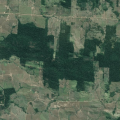 The Glasgow Declaration on Forests is far from “unprecedented”. It’s just another in a long line of meaningless UN declarations
The Glasgow Declaration on Forests is far from “unprecedented”. It’s just another in a long line of meaningless UN declarations
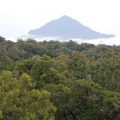 Tropical forests in Africa’s mountains store more carbon than previously thought—but are disappearing fast
Tropical forests in Africa’s mountains store more carbon than previously thought—but are disappearing fast
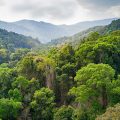 The Rush for Carbon Concessions: More Land Theft and Deforestation
The Rush for Carbon Concessions: More Land Theft and Deforestation
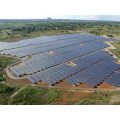 Solar energy capacity to reach 200MW next year
Solar energy capacity to reach 200MW next year
You may like
-


Africa warming faster than rest of world: IPCC Sixth Assessment Report
-


WWF launches new impact platform that engages businesses and investors to deliver on sustainability ambitions
-
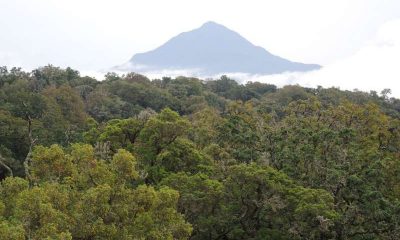

Tropical forests in Africa’s mountains store more carbon than previously thought—but are disappearing fast
-
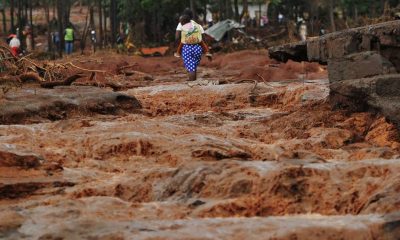

Insights for African countries from the latest climate change projections
-


Finnish carbon offsetting firm Compensate finds 91% of carbon offset projects fail its evaluation process. Of course the remaining 9% will also not help address the climate crisis
-
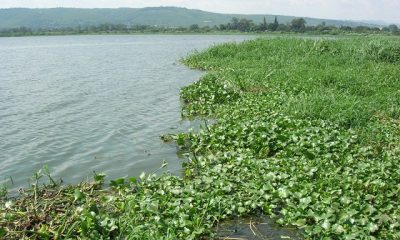

Water hyacinth threatens Lake Victoria’s ecosystem
SPECIAL REPORTS AND PROJECTS
Activism on Trial: Despite the increasing repressive measures, Uganda’s EACOP protesters are achieving unexpected victories in the country’s justice systems.
Published
4 days agoon
July 8, 2025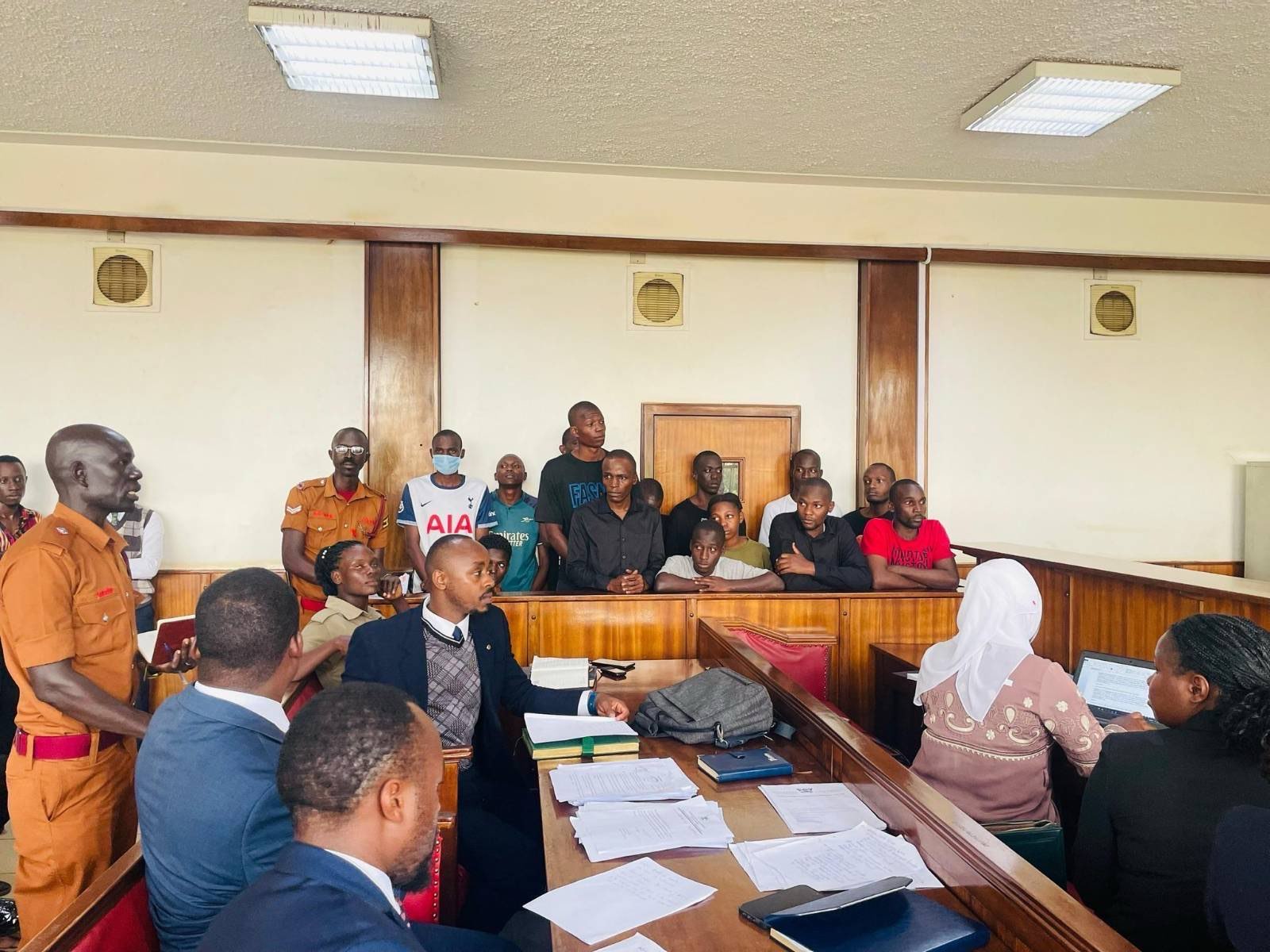
Special report by the dedicated and thorough Witness Radio team, offering a comprehensive and in-depth overview of the situation.
As Uganda moves forward with the controversial East African Crude Oil Pipeline (EACOP), a wave of arrests, intimidation, and court cases has targeted youth and environmental activists opposing the project. However, there is a noticeable and encouraging shift within Uganda’s justice systems, with a growing support for the protesters, potentially signaling a change in the legal landscape.
The EACOP project, stretching 1,443 kilometers from Uganda to Tanzania, has been hailed by the government as a development milestone. However, human rights groups and environmental watchdogs have consistently warned that the project poses serious risks to communities, biodiversity, and the climate. Concerns over land grabbing, inadequate compensation, and ecological degradation have mobilized a new generation of Ugandan activists.
Since 2022, as opposition to EACOP grew louder, Ugandan authorities have intensified a campaign of arrests and legal harassment. Police, military, and currently the Special Forces Command, a security unit tasked with protecting Uganda’s president, have been involved in brutal crackdowns on these activists.
Yuda Kaye, the mobilizer for students against EACOP, believes the criminalization is an attempt by the government to weaken their cause and silence them from speaking out about the project’s negative impacts.
“We are arrested just for raising the project concerns, which affect our future, the local communities, and the environment at large. Oftentimes, we are arrested without reason. They just round us up at once and brutally arrest us, Mr. Kaye reveals, in an interview with Witness Radio’s research team.
Activists have faced a litany of charges, including unlawful assembly, incitement to violence, public nuisance, and criminal trespass. Many of these charges have lacked substantive evidence and have been dismissed by the courts or had their files closed by the police after prolonged delays.
A case review conducted by Witness Radio Uganda reveals that Uganda’s justice system is being used to suppress the activities of youth activists opposing the project, rather than convicting them. However, despite the system being used to silence them, it has often found no merit in these cases.
Of a sample of 20 documented cases since 2022 involving the arrest of over 180 activists, 9 case files against the activists have either been dismissed by courts or closed by the police due to a lack of prosecution, another signal indicating the relevance of their work, while 11 cases remain ongoing.
The chart below shows trends in arrests, dismissed cases, and ongoing cases involving EACOP activists in Uganda from 2022 to May 2025.
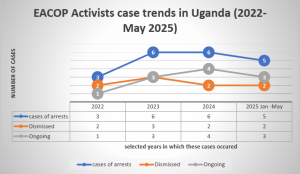
The review was conducted with support from the activists themselves and their lawyers. It involved a desk review and analysis of Witness Radio articles concerning the arrests of defenders and activists opposing the EACOP project.
Witness Radio’s analysis reveals a concerning trend as the majority of cases involving these activists are stalling at the police level rather than progressing to the courts of law. This suggests that the police have not only criminalized activism but are also playing a syndicate role in deliberately prolonging these cases under the excuse of ongoing investigations.
“While both the police and judiciary are being used to suppress dissent, the courts have at least demonstrated a degree of fairness, having dismissed at least 78% of cases that fall within their jurisdiction. In contrast, the police continue to hold 73% of activist cases in limbo, citing investigations as justification for indefinite delays.” The research team discovered.
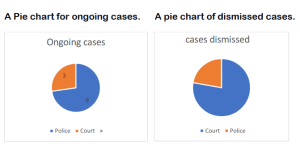
Witness Radio’s analysis further shows that in most of these cases, the state has failed to produce witnesses or evidence to convict the activists, adding that the charges are often just tools of intimidation. Additionally, this is accompanied by more extended periods during which decisions are being made.
Despite the intense crackdown, it is evident that these activists are winning, as no proven record of sentencing has been observed. Instead, these cases are often marred by delays in court or at the police, and in the end, some have been dismissed. This implies that protest marches and petition deliveries serve a purpose; the state just needs to listen to their concerns and formulate possible solutions to address them,” said Tonny Katende, Witness Radio Uganda’s Research, Media and Documentation Officer.
According to Article 29(1)(d) of the Constitution of Uganda, every individual has the right to “assemble and demonstrate together with others peacefully and unarmed and to petition.” Additionally, Article 20 emphasizes that fundamental rights and freedoms “are inherent and not granted by the State.” Yet activists report that police regularly deny them the right to exercise their rights as guaranteed.
At a February 2025 press conference, EACOP activists strongly condemned the police’s continued unlawful arrests of demonstrators exercising their constitutional rights and case delays. This followed escalating crackdowns that added to the tally of over 100 activists arrested in 2024 alone.
“We strongly condemn these arrests. Detaining demonstrators does not address the concerns affecting grassroots communities impacted by oil and gas projects,” declared the group, led by Bob Barigye, who remains in prison on another charge still linked to his opposition to EACOP.
An interview with Mr. Yuda Kaye, a mobilizer from the Students Against EACOP Movement, confirmed that the ongoing dismissals only reaffirm the legitimacy of their resistance.
“These cases are dismissed because the government and its justice systems don’t have any grounds to convict us. This justifies the fact that the issues we’re discussing are real. We only seek accountability, but since the government has power, they criminalize us and silence us,” Mr. Kaye added.
According to Kaye, the intimidation is real, but so is their commitment. “We are called enemies of progress, but we’re only protecting our future and that of our country. We’ve often proposed alternatives, but the government doesn’t want them.” He re-echoes.
Despite this, activists say their rights are routinely violated. Witness Radio Uganda attempted to contact the police spokesperson, Mr. Kituuma Rusooke, but known numbers were unreachable, and messages sent to him went unanswered.
In a separate interview with Mr. James Eremye Mawanda, the Judiciary Spokesperson, he acknowledged the pattern of dismissals and delays.
“As the Judiciary, we listen to cases, and where there is no evidence to support the case, a decision is made. When a crime is allegedly committed and an individual is brought before the court, the courts upholding the rule of law shall administer justice,” he said.
According to Witness Radio’s analysis, 2025 has seen the most dismissals so far, with six cases concluding, reinforcing the view that criminalization is used more for intimidation than as a means of legal redress. “Whereas the arrests took place in separate years, most of the dismissals have happened in 2025,” the research team further highlighted.
Mr. Brighton Aryampa, the team lead of Youth for Green Communities, one of the organizations that provide legal representation for Stop-EACOP activists, highlighted that the criminalization of Ugandan activists undermines Uganda’s democratic principles of free expression and open discourse.
“The government, in bed with oil corporations Total Energies and CNOOC, is deliberating using legal action against Stop EACOP activists to suppress dissent, free speech, right to peaceful protest, and against public participation. This is tainting Uganda as a country that undermines the democratic principles of free expression and open discourse, as hundreds of Stop EACOP activists have been arrested, charged, and some tried by a competent court. However, no one has been found guilty of the fabricated offense usually slapped on them.” He said in an interview with Witness Radio.
Counsel Aryampa further advised that the practice of powerful companies and businesses blackmailing and corrupting the Ugandan government to develop harmful projects while ignoring all social warnings and human rights abuses must be stopped.
The pressure exerted by these activists, both locally and internationally, has slowed the EACOP project. It has also led to bankers and insurers withdrawing from financing or insuring the project. According to Stop EACOP campaigners, more than 40 international banks and 30 global insurance firms, including Chubb, have distanced themselves from the controversial pipeline project, citing human rights and climate concerns raised by these activists.
Meanwhile, as the activism grows, the number of arrests is rising. Within just the first six months of 2025, over 40 activists have been criminalized for their activism. Among them is KCB 11, a group of eleven activists that was arrested at the KCB offices in April 2025. The group has spent over two months on remand, despite their lawyers’ pleas for bail to be granted.
Related posts:

 EACOP activism under Siege: Activists are reportedly criminalized for opposing oil pipeline project in Uganda.
EACOP activism under Siege: Activists are reportedly criminalized for opposing oil pipeline project in Uganda.
 EACOP: The trial of 20 environmental activists failed to take off, and now they want the case dismissed for lack of prosecution.
EACOP: The trial of 20 environmental activists failed to take off, and now they want the case dismissed for lack of prosecution.
 Milestone: Another case against the EACOP activists is dismissed due to the want of prosecution.
Milestone: Another case against the EACOP activists is dismissed due to the want of prosecution.
 The latest: Another group of anti-EACOP activists has been arrested for protesting Stanbic Bank’s financing of the EACOP Project.
The latest: Another group of anti-EACOP activists has been arrested for protesting Stanbic Bank’s financing of the EACOP Project.
SPECIAL REPORTS AND PROJECTS
‘Left to suffer’: Kenyan villagers take on Bamburi Cement over assaults, dog attacks
Published
4 months agoon
March 22, 2025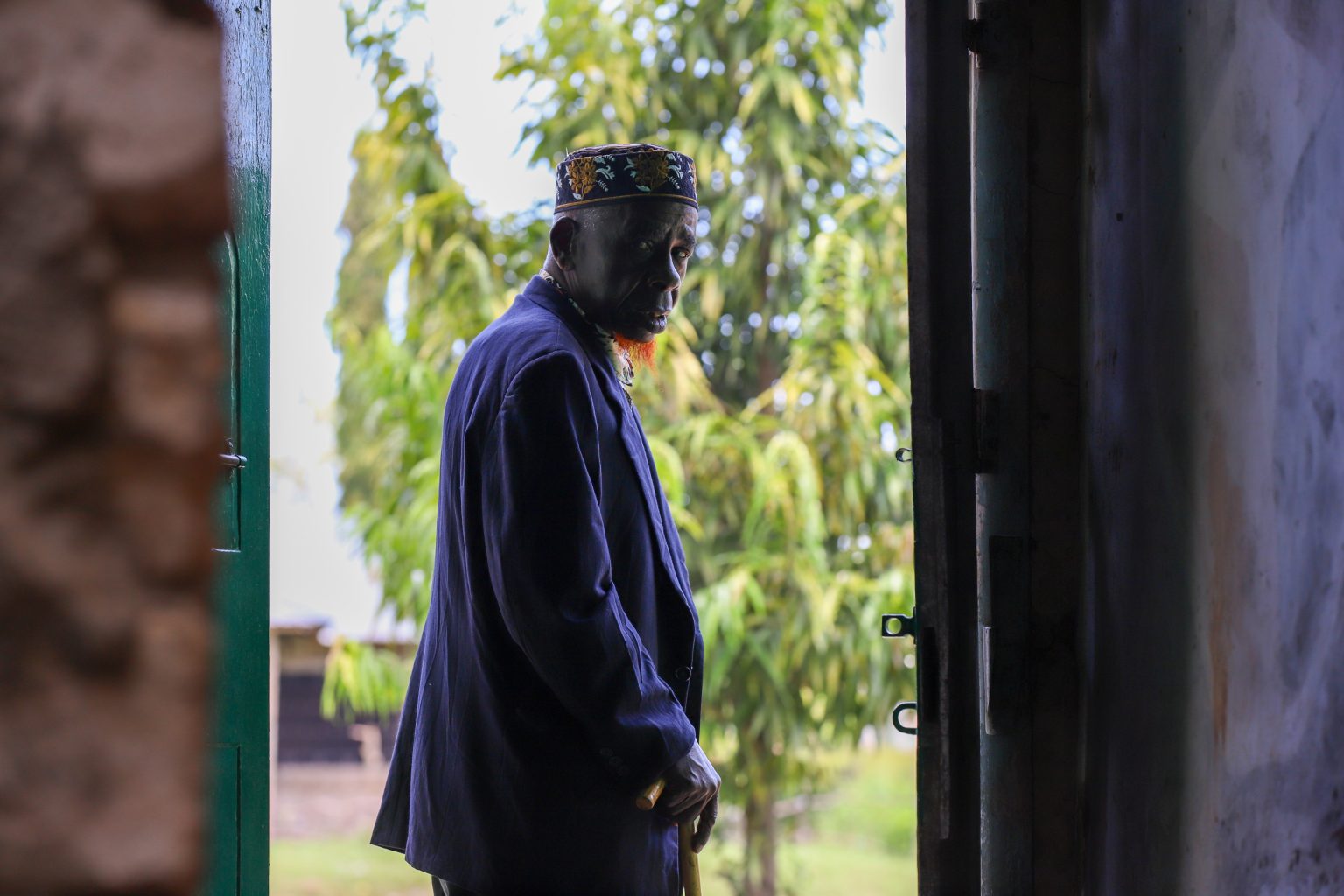
- The victims are aged between 24 and 60, and one of them has since passed on.
- Many were severely injured and hospitalized following brutal attacks, unlawful detention, and physical assault by Bamburi’s security personnel.
Editor’s note: Read the petition here.
Their hopes for justice seemed to be slipping away after initially taking on a multinational corporation and failing to hold it accountable for the brutal injuries they suffered.
The death of one of their own cast a shadow of despair, making it seem unlikely that they would ever bring the corporation to justice for the crimes they alleged.
However, 11 victims of dog attacks, assaults, and other severe human rights violations are now challenging Bamburi Cement PLC’s role in these abuses in court.
They are represented by the Kenya Human Rights Commission (KHRC), which on January 29, 2025, filed a legal claim before a constitutional court in Kenya, seeking to hold the multinational accountable for the harm suffered by the victims—residents of land parcels in Kwale that Bamburi claims ownership of. KHRC worked with the Kwale Mining Alliance (KMA) to bring this case.
The victims, aged between 24 and 60, include Mohamed Salim Mwakongoa, Ali Said, Abdalla Suleiman, Hamadi Jumadari, Abdalla Mohammed, and Omari Mbwana Bahakanda. Others are Shee Said Mbimbi, Omar Mohamed, Omar Ali Kalendi (deceased), Abdalla Jumadari, and Bakari Nuri Kassim.
Bamburi had hired a private security firm and deployed General Service Unit (GSU) officers to guard three adjoining land parcels, covering approximately 1,400 acres in Denyenye, Kwale. The GSU established a camp on the land, which has historically been accessed by residents who have long used established routes to reach the forest and the Indian Ocean.
For decades, these routes provided them with access to resources such as firewood, crops, and fish, which they relied on for their livelihoods. However, five years ago, when they attempted to collect firewood, harvest crops, and access the ocean through the land, Bamburi accused them of trespassing. The company’s private guards and GSU officers responded with force, setting dogs on them and assaulting them.
Many were severely injured and hospitalized following brutal attacks, unlawful detention, and physical assault by Bamburi’s security personnel. These incidents occurred despite the lack of clearly defined boundaries and the fact that the traditional access routes had never been contested.
According to the petition, GSU officers and private guards inflicted serious injuries by kicking, punching, and beating the victims with batons. Those who were arrested were neither taken to a police station nor charged with any offense. Despite their injuries, they were denied emergency medical care.
These actions were intended to intimidate residents, prevent them from accessing the beach, and suppress any historical claims to the land, the victims tell the court. Local police in Kwale failed to investigate the abuses, visit the crime scenes, or arrest any of the perpetrators, they add.
Now, the victims are seeking compensation for these violations. They have also asked the court to declare that their rights were violated through torture inflicted by Bamburi’s guards and GSU officers. Additionally, they want the court to rule that releasing guard dogs to attack them during arrests constituted an extreme and unlawful use of force.
Source: khrc.or.ke
Related posts:

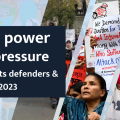 Breaking: Over 600 attacks against defenders have been recorded in the year 2023 globally- BHRRC report.
Breaking: Over 600 attacks against defenders have been recorded in the year 2023 globally- BHRRC report.
 Kaweeri Coffee land grabbing case re-trial resumes as evictees continue to suffer gross human rights violations.
Kaweeri Coffee land grabbing case re-trial resumes as evictees continue to suffer gross human rights violations.
 Criminalization of planet, land, and environmental defenders in Uganda is on the increase as 2023 recorded the soaring number of attacks.
Criminalization of planet, land, and environmental defenders in Uganda is on the increase as 2023 recorded the soaring number of attacks.
 Local land grabbers evict villagers at night; foreign investors cultivate the same lands the next day
Local land grabbers evict villagers at night; foreign investors cultivate the same lands the next day
SPECIAL REPORTS AND PROJECTS
River ‘dies’ after massive acidic waste spill at Chinese-owned copper mine
Published
4 months agoon
March 22, 2025A catastrophic acid spill from a Chinese-owned copper mine in Zambia has contaminated a major river, sparking fears of long-term environmental damage and potential harm to millions of people.
The spill, which occurred on February 18, has sent shockwaves through the southern African nation.
Investigators from the Engineering Institution of Zambia revealed that the incident stemmed from the collapse of a tailings dam at the mine.
This dam, designed to contain acidic waste, released an estimated 50 million litres of toxic material into a stream feeding the Kafue River, Zambia’s most important waterway.
The waste is a dangerous cocktail of concentrated acid, dissolved solids, and heavy metals.
The Kafue River, stretching over 930 miles (1,500 kilometres) through the heart of Zambia, supports a vast ecosystem and provides water for millions. The contamination has already been detected at least 60 miles downstream from the spill site, raising serious concerns about the long-term impact on both human populations and wildlife.
Environmental activist Chilekwa Mumba, working in Zambia’s Copperbelt Province, described the incident as “an environmental disaster really of catastrophic consequences”.
The spill underscores the risks associated with mining, particularly in a region where China holds significant influence over the copper industry.
Zambia ranks among the world’s top 10 copper producers, a metal crucial for manufacturing smartphones and other technologies.
Zambian President Hakainde Hichilema has appealed for expert assistance to address the crisis. The full extent of the environmental damage is still being assessed.
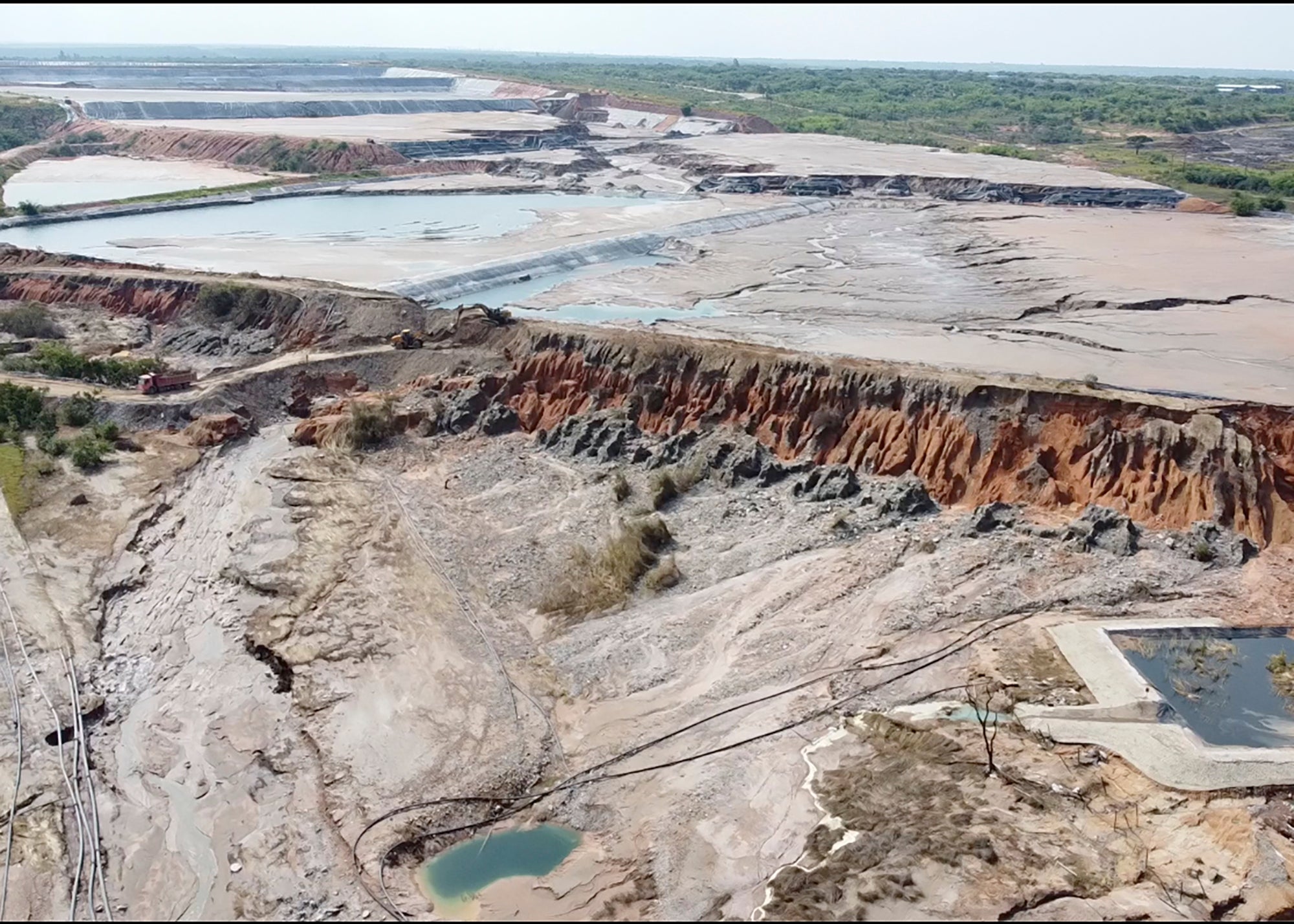
A river died overnight
An Associated Press reporter visited parts of the Kafue River, where dead fish could be seen washing up on the banks about 60 miles downstream from the mine run by Sino-Metals Leach Zambia, which is majority owned by the state-run China Nonferrous Metals Industry Group.
The Ministry of Water Development and Sanitation said the “devastating consequences” also included the destruction of crops along the river’s banks. Authorities are concerned that ground water will be contaminated as the mining waste seeps into the earth or is carried to other areas.
“Prior to February 18 this was a vibrant and alive river,” said Sean Cornelius, who lives near the Kafue and said fish died and birdlife near him disappeared almost immediately.
“Now everything is dead, it’s like a totally dead river. Unbelievable. Overnight, this river died.”
About 60 per cent of Zambia’s 20 million people live in the Kafue River basin and depend on it in some way as a source of fishing, irrigation for agriculture and water for industry. The river supplies drinking water to about five million people, including in the capital, Lusaka.
The acid leak at the mine caused a complete shutdown of the water supply to the nearby city of Kitwe, home to an estimated 700,000 people.
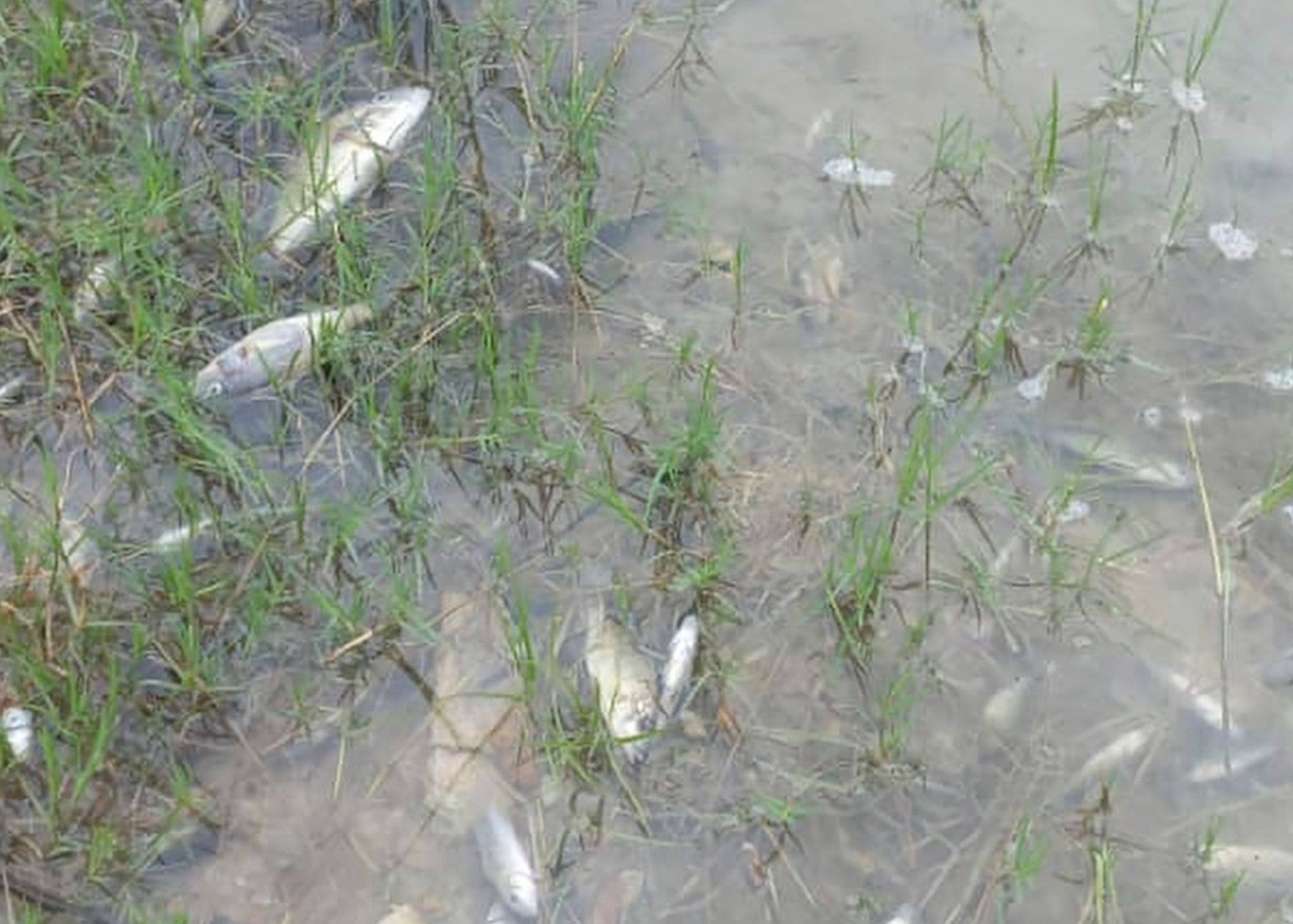
Attempts to roll back the damage
The Zambian government has deployed the air force to drop hundreds of tons of lime into the river in an attempt to counteract the acid and roll back the damage. Speed boats have also been used to ride up and down the river, applying lime.
Government spokesperson Cornelius Mweetwa said the situation was very serious and Sino-Metals Leach Zambia would bear the costs of the cleanup operation.
Zhang Peiwen, the chairman of Sino-Metals Leach Zambia, met with government ministers this week and apologized for the acid spill, according to a transcript of his speech at the meeting released by his company.
“This disaster has rung a big alarm for Sino-Metals Leach and the mining industry,” he said.
It “will go all out to restore the affected environment as quickly as possible”, he said.
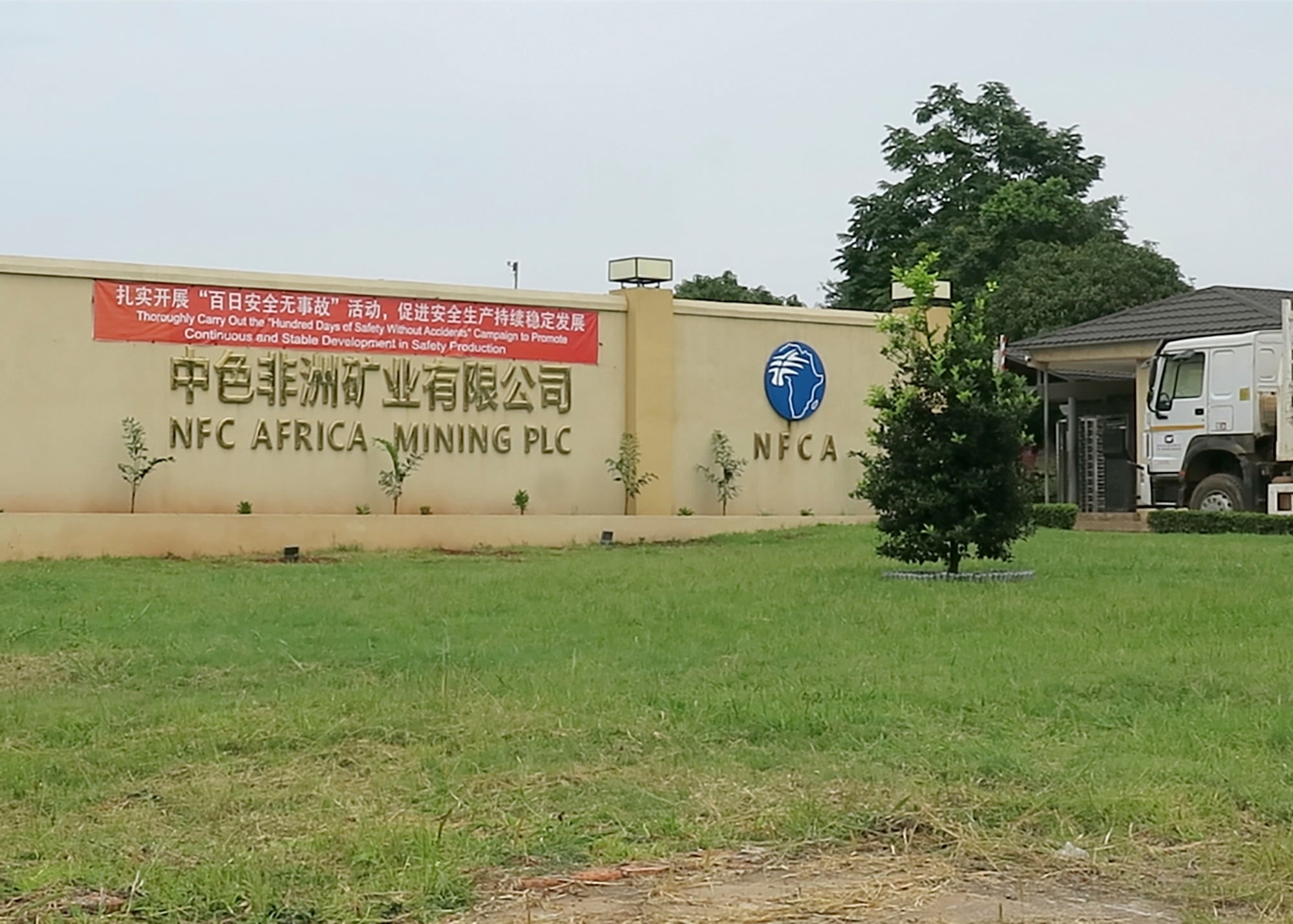
Discontent with Chinese presence
The environmental impact of China’s large mining interests in mineral-rich parts of Africa, which include Zambia’s neighbors Congo and Zimbabwe, has often been criticised, even as the minerals are crucial to the countries’ economies.
Chinese-owned copper mines have been accused of ignoring safety, labour and other regulations in Zambia as they strive to control its supply of the critical mineral, leading to some discontent with their presence.
Zambia is also burdened with more than $4 billion in debt to China and had to restructure some of its loans from China and other nations after defaulting on repayments in 2020.
A smaller acid waste leak from another Chinese-owned mine in Zambia’s copper belt was discovered days after the Sino-Metals accident, and authorities have accused the smaller mine of attempting to hide it.
Local police said a mine worker died at that second mine after falling into acid and alleged that the mine continued to operate after being instructed to stop its operations by authorities. Two Chinese mine managers have been arrested, police said.
Both mines have now halted their operations after orders from Zambian authorities, while many Zambians are angry.
“It really just brings out the negligence that some investors actually have when it comes to environmental protection,” said Mweene Himwinga, an environmental engineer who attended the meeting involving Mr Zhang, government ministers, and others.
“They don’t seem to have any concern at all, any regard at all. And I think it’s really worrying because at the end of the day, we as Zambian people, (it’s) the only land we have.”
Source: www.independent.co.uk

Activism on Trial: Despite the increasing repressive measures, Uganda’s EACOP protesters are achieving unexpected victories in the country’s justice systems.

Communities Under Siege: New Report Reveals World Bank Failures in Safeguard Compliance and Human Rights Oversight in Tanzania

A decade of displacement: How Uganda’s Oil refinery victims are dying before realizing justice as EACOP secures financial backing to further significant environmental harm.

Carbon Markets Are Not the Solution: The Failed Relaunch of Emission Trading and the Clean Development Mechanism

A decade of displacement: How Uganda’s Oil refinery victims are dying before realizing justice as EACOP secures financial backing to further significant environmental harm.

Govt launches Central Account for Busuulu to protect tenants from evictions

Activism on Trial: Despite the increasing repressive measures, Uganda’s EACOP protesters are achieving unexpected victories in the country’s justice systems.

Despite harsh repression, opposition to the EACOP pipeline in Uganda remains strong

Innovative Finance from Canada projects positive impact on local communities.
Over 5000 Indigenous Communities evicted in Kiryandongo District
Petition To Land Inquiry Commission Over Human Rights In Kiryandongo District
Invisible victims of Uganda Land Grabs
Resource Center
- LAND GRABS AT GUNPOINT REPORT IN KIRYANDONGO DISTRICT
- RESEARCH BRIEF -TOURISM POTENTIAL OF GREATER MASAKA -MARCH 2025
- The Mouila Declaration of the Informal Alliance against the Expansion of Industrial Monocultures
- FORCED LAND EVICTIONS IN UGANDA TRENDS RIGHTS OF DEFENDERS IMPACT AND CALL FOR ACTION
- 12 KEY DEMANDS FROM CSOS TO WORLD LEADERS AT THE OPENING OF COP16 IN SAUDI ARABIA
- PRESENDIANTIAL DIRECTIVE BANNING ALL LAND EVICTIONS IN UGANDA
- FROM LAND GRABBERS TO CARBON COWBOYS A NEW SCRAMBLE FOR COMMUNITY LANDS TAKES OFF
- African Faith Leaders Demand Reparations From The Gates Foundation.
Legal Framework
READ BY CATEGORY
Newsletter
Trending
-

 SPECIAL REPORTS AND PROJECTS4 days ago
SPECIAL REPORTS AND PROJECTS4 days agoActivism on Trial: Despite the increasing repressive measures, Uganda’s EACOP protesters are achieving unexpected victories in the country’s justice systems.
-

 NGO WORK1 week ago
NGO WORK1 week agoCommunities Under Siege: New Report Reveals World Bank Failures in Safeguard Compliance and Human Rights Oversight in Tanzania



